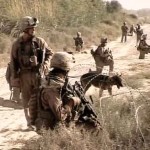Addressing the “root-cause”
UNODC in its recently published report on drug trafficking have summarised factors which continues to adversely affect the UN designated Sustainable Development Goals (SDGs). There are goals which member nations are thriving to achieve by the end of 2030, and in accordance to the active participation of law enforcement agencies in an effort to effectively address the growing drug trade. International organizations along with global communities must actively engage with local and regional law enforcement agencies to ensure effective cooperation, coordination and correlation in an effort to counter the threat aggressively.
“Ignored and Underdeveloped” Socio-economic conditions
Drug addiction and abuse has drastic effects on health. Policy makers must note that, drug trafficking is rampant in nation with poor drug control laws and other legislations on essential medicine, particularly in drug control. Inadequate laws on medicine essentially drives the drug trafficking business which further carries socio-economic problems associated with drug trafficking and hinder the nation’s efforts in achieving sustainable development.
Policy makers must acknowledge the missing link between the socio-economic underdevelopment and drug cultivation and distribution. Poverty and harsh socio-economic conditions force individuals to indulge in drug-related activities. Today, the drug cultivation, production and trafficking have become part of nation’s economy. In the light of aforementioned arguments stated above, it is impossible to drive an economy in the positive direction while bringing “sustainable economic growth” through illicit activities coupled with organized crime factions, their “nature of entanglement”, fuelled with excessive violence and oppression.
Inadequate inter-agency cooperation and coordination
International cooperation depends upon the intensity of crisis rather than the seriousness of the issue or the adverse threat it poses. Moreover, nations in and around the drug trade are often forced to participate in law enforcement joint task force. In the light of intense drug related crimes and its ability to compromise the safety and security of the masses, policy makers must utilise all available resources at hand, including intra-agency or inter-agency assistance in an effort to prevent instability in the region. In cases where the nations are affected by drug trafficking, its law enforcement agencies participate the least, and the chances of compromising covert operations within their territories becomes high, especially when the suspected terrorist is behind political finances and is laundering money for senior political leadership.
Proposed Solutions
Extensive Intelligence sharing and Intra-agency interaction
The international law enforcement institutions, relevant intelligence agencies and law enforcement agencies of the “host” state along with international law enforcement organizations, global financial institutions along with international non-governmental organizations should play an “aggressive” role with sheer responsibility in an effort to effectively and efficiently counter the cultivation and distribution of drugs. In an effort to surgically “eliminate” the actors and further preventing them to shift to a new location, international cooperation and coordination between agencies is a must. This will involve available global strategic units to lay out strategies to counter drug trafficking operations, while liaising with logistical units and putting an end to their operation. This would further assist farmers in acquiring legal assistance, getting access to education, a then a job which could bring drastic change in their lives; preventing an end to further concealing of drugs in shipment containers and cargo bays.
International law enforcement agencies such as INTERPOL or EUROPOL and UNODC can share viable intelligence within their partnered agencies. They can further invite relevant law enforcement agencies particularly regional and local agencies which are the first responders against the drug traffickers. Policy makers must understand that, the focus should not be on drug trafficking/cultivation alone, since this approach could steer law enforcement agencies to a “limited” approach: preventing agencies from investigating the “larger” element in the case, since transnational organized crime operates majorly on “multi-national” level, not only limiting their “relationship” to drug trafficking, but also involving weapon trafficking, smuggling/abduction of women and crimes of all forms. It is important for agencies to interact with multi-dimensional approach in an effort to maximise their knowledge and understanding of scenarios. Regular engaging with experts could reinforce their case against drug trafficking.
It is also important for policy makers to extensively interact with digital experts particularly especially in the domain of “dark net”, the internet age of drug trafficking. Since the nature of the “dark net” remains transnational and so does its activities, law enforcement agencies must liaise with INTERPOL or EUROPOL or agencies with a history with “dark net”.
Strengthening anti-corruption measures
In an effort to counter drug trafficking effectively and efficiently, law enforcement agencies must keep a strict vigil on “in-house” corruption activities. It is quite easy for drug traffickers to interact with political leadership and cripple the system of governance. There have been instances of corrupt legislative and law enforcement officers’ involvement in the drug trafficking ring and the election of certain “suspected” drug traffickers to public offices, law enforcement agencies must “keep their house clean”.
Local legislators are frequently threatened, particularly the regional law enforcement agencies head as bribe is either “forced down their throat”, or are threatened to “execute” their family members on non-compliance. The first step in cracking down these drug traffickers is to prevent local officers from being bribed. It is important for law enforcement agencies to trace the source and the destination of the money along with the “middlemen” tasked to contact politicians and heads of law enforcement agencies. It is important for policy makers and top political leadership to establish a “mechanism” against corruption which could have the power to punish any public officer caught on record, and issue rewards of suspension, dismissal or even imprisonment depending upon the case.




